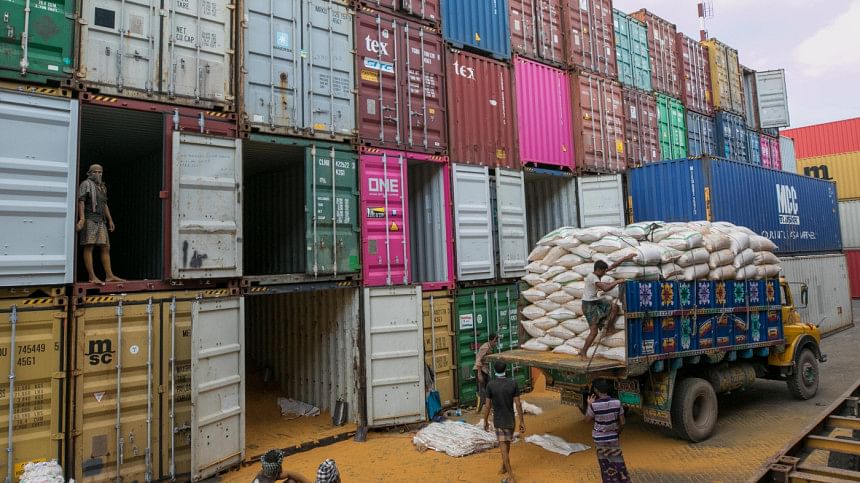Containerised cargo movement ‘normal’: ICDs

Ongoing political unrest has seemingly had very little impact so far on the movement of a majority of containerised cargo processed by private inland container depots (ICDs) either for export or which are imported through the Chattogram port.
There are 19 private ICDs located in and around the port city which handle over 92 percent of the country's exports, including garments, and around 26 per cent of containerised imports coming through the port.
These ICDs, alongside two new ones, also act as a temporary storage for a huge number of empty containers.
The amount of cargo handled at the ICDs was "normal" on the first half of this month although on the first couple of days the transportation took place during the evening and night for the blockades and hartals, said the depot owners.
There were a few scattered incidents of picketing in some areas, which apparently had no significant impact, according to a number of ICD officials.
This was reflected in records of cargo transport between the ICDs and the port during the 15-day period.
A total of 23,973 TEUs (twenty-foot equivalent units) of export-laden containers were processed, according to Bangladesh Private Inland Container Depots Association (Bicda).
In October it was 49,288 TEUs, said the ICD officials.
They hope to process around the same amount of cargo by the end of this month.
In case of containerised imports, it was 8,900 TEUs in November's first half whereas 17,827 TEUs in October.
The ICDs opted to be cautious when moving goods between their premises and the port on the first few days, said Bicda Secretary General Md Ruhul Amin Sikder.
The stance was the same for many exporters and importers from around the country when sending or taking deliveries, he said.
The situation gradually improved and there was no disruption, he added.
The same observation came from Captain Kamrul, chief operating officer of Summit Alliance Port Limited's two ICDs.

 For all latest news, follow The Daily Star's Google News channel.
For all latest news, follow The Daily Star's Google News channel. 



Comments